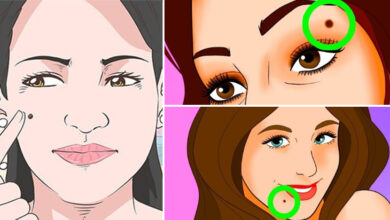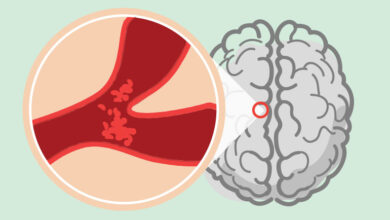Vitamin C isn’t just good for fighting colds. It can help lower stress hormones, and fight symptoms of stress like sickness and poor sleep. A 2015 study published in Nigerian journal of physiological sciences found that vitamin C can reduce levels of cortisol (a stress hormone), help stress tolerance, and fight sleep deprivation. Aside from eating oranges, you can boost your vitamin C levels by eating kale, broccoli, peppers, and strawberries.
4. Vitamin B12
Vegans and vegetarians in particular have to watch their levels of B12, as it’s mostly found in animal products. A vitamin B12 deficiency has been linked to insomnia, depression, and sleep issues. A study published in Journal of Clinical Sleep Medicine in 2019 noted that it can also make you fatigued in the daytime. If you start to notice these symptoms after switching to a more plant-based diet, it may be worth taking a supplement.
5. Magnesium
“Nutrients like magnesium, zinc, and certain amino acids are the building blocks of calming neurotransmitters that help our brains settle down, so not getting enough of those key nutrients can make it difficult to get really solid sleep,” Foroutan tells Bustle. Magnesium deficiency has been linked to poor sleep as well as anxiety and depression (which can worsen insomnia), but it’s very uncommon outside of hospitalized patients. Increasing levels of magnesium has been shown to lower your chances of falling asleep during the day, according to a 2018 study in Nutrients. Magnesium is often recommended to patients with anxiety or depression, but can be beneficial to anyone. You can find magnesium in dark leafy greens, nuts and seeds, and dark chocolate.
6. Vitamin B6
Vitamin B6, like calcium, helps the body converting tryptophan into serotonin, which regulates mood and melatonin levels. Vitamin B6 deficiency has been linked to poor sleep quality. Studies show that participants who took a Vitamin B6 supplement reported better sleep quality, and feeling more well-rested and refreshed when they woke up in the mornings. Vitamin B6 can be found in foods such as chickpeas, salmon, watermelon, and spinach.
Melatonin
The body naturally produces melatonin, but factors like bright lights or even diet can reduce production of melatonin and make it harder to sleep at night. There are many ways to naturally boost levels of melatonin, like reducing your exposure to blue light, and eating melatonin-rich foods like goji berries, walnuts, or pineapple.
Experts cited:
Robin Foroutan MS RDN
Caroline Leaf Ph.D.
Studies cited:
Cao, Y., Zhen, S., Taylor, A. W., Appleton, S., Atlantis, E., & Shi, Z. (2018). Magnesium Intake and Sleep Disorder Symptoms: Findings from the Jiangsu Nutrition Study of Chinese Adults at Five-Year Follow-Up. Nutrients, 10(10), 1354. https://doi.org/10.3390/nu10101354
Cuciureanu, M.D., Vink, R. Magnesium and stress. In: Vink, R., Nechifor, M., editors.(2011) Magnesium in the Central Nervous System. Adelaide (AU): University of Adelaide Press.
Das, G., Gopalakrishnan, A., Faisal, M., & Mallick, B. N. (2008). Stimulatory role of calcium in rapid eye movement sleep deprivation-induced noradrenaline-mediated increase in Na-K-ATPase activity in rat brain. Neuroscience, 155(1), 76–89. https://doi.org/10.1016/j.neuroscience.2008.04.069
Gao, Q., Kou, T., Zhuang, B., Ren, Y., Dong, X., & Wang, Q. (2018). The Association between Vitamin D Deficiency and Sleep Disorders: A Systematic Review and Meta-Analysis. Nutrients, 10(10), 1395. https://doi.org/10.3390/nu10101395
Grandner, M. A., Jackson, N., Gerstner, J. R., & Knutson, K. L. (2014). Sleep symptoms associated with intake of specific dietary nutrients. Journal of sleep research, 23(1), 22–34. https://doi.org/10.1111/jsr.12084
Forrest, K. Y., & Stuhldreher, W. L. (2011). Prevalence and correlates of vitamin D deficiency in US adults. Nutrition research (New York, N.Y.), 31(1), 48–54. https://doi.org/10.1016/j.nutres.2010.12.001
Khawaja, I., Yingling, K., Bukamur, H., Abusnina, W. (2019) Vitamin b12 deficiency: a rare cause of excessive daytime sleepiness. J Clin Sleep Med. 5(9), 1365–1367.
Nakade, M., Akimitsu, O., Wada, K., Krejci, M., Noji, T., Taniwaki, N., Takeuchi, H., & Harada, T. (2012). Can breakfast tryptophan and vitamin B6 intake and morning exposure to sunlight promote morning-typology in young children aged 2 to 6 years?. Journal of physiological anthropology, 31(1), 11. https://doi.org/10.1186/1880-6805-31-11
Olayaki, L. A., Sulaiman, S. O., & Anoba, N. B. (2015). Vitamin C Prevents Sleep Deprivation-induced Elevation in Cortisol and Lipid Peroxidation in the Rat Plasma. Nigerian journal of physiological sciences : official publication of the Physiological Society of Nigeria, 30(1-2), 5–9.
Peuhkuri, K., Sihvola, N., & Korpela, R. (2012). Dietary factors and fluctuating levels of melatonin. Food & nutrition research, 56, 10.3402/fnr.v56i0.17252. https://doi.org/10.3402/fnr.v56i0.17252




